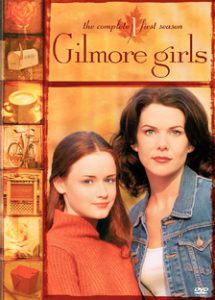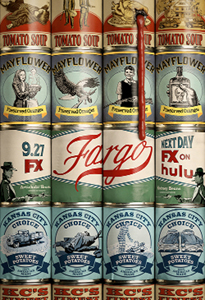Didn’t “Fargo” used to be kind of a comedy? I mean, I know it’s always had its dark and violent side, but damn. Season 4 (Sundays on FX), which premiered with two episodes totaling 2 hours and 40 minutes, is slow, grim and slathered in midcentury racism as it chronicles the budding war between the Italian and black crime syndicates in Kansas City.
(Season 2 chronicled a modern version of the K.C. syndicate that emerges from the continual cycle of power grabs.)
Ideal show for 2020
Being about racism, the 11-episode “Fargo” Season 4 – again tightly overseen by Noah Hawley, who writes and directs the first two episodes – is thematically an ideal show for 2020. But it’s stuck in the deliberately paced, prestige-TV aesthetic of the previous decade. Numerous storylines inch forward in what looks to be the least centralized season so far.
Hawley and Co. haven’t forgotten to include the quirk factor, but when quirky things come up, they are noticeably distinct from the brooding. Nurse Oreaetta Mayflower (Jessie Buckley), who takes it upon herself to kill already dying patients with a cocktail in their IV tube, has that exaggerated Minnesota accent we’ve come to expect.
And a police investigator, Odis Weff (Jack Huston), who is on the Italian syndicate’s payroll, has extreme OCD; he must knock on a door 10 times before exiting a room; still, he doesn’t pop off the screen like, say, Allison Tolman’s provincial Molly Solverson of Season 1.
Following Billy Bob Thornton, Kirsten Dunst and Ewan McGregor, the big-name casting this season is Chris Rock as the black syndicate’s leader, Loy Cannon. Rock is much more beaten-down and lacking in humor (even including his work in Adam Sandler films) than we’ve ever seen him, but that becomes less interesting when there’s no character growth beyond that.
As Josto Fodda, Jason Schwartzman is Cannon’s slimier counterpart on the Italian side, taking the reins after the death of his dad, Donatello (Tommaso Ragano).
A long fart joke
The black group is united and committed to growth, with the wonderfully named Doctor Senator (Glynn Turman) as Cannon’s second-in-command. The Italian group is divided and unpredictable, with the large Salvatore Esposito giving a great turn as Josto’s older brother Gaetano, who was undoubtedly a bully in his school days.
If you like mob power dramas, “Fargo” Season 4 serves up plenty of the clichés of the two groups – and often individuals – staring each other down, often pulling weapons, sometimes using them. The Scorsese-esque mob powermongering is enhanced or undercut – depending on what you come here for – by bits of the randomness “Fargo” trades in.
The elder Fodda is pierced by a child’s stray popgun bullet at the end of a scene where it’s seemingly established that the popguns don’t fire bullets; it’s a prime example of this story leaning toward narrative confusion rather than complexity.
The accidental shooting follows on the heels of Donatello appearing to have a heart attack, but he’s actually priming himself to rip a long fart. A moment like that is usually my type of humor, but here it’s just weird.

A history of violence
Still, I’m soaking up historical knowledge (in a vague sense, because we know the “true story” lead-in isn’t to be trusted). “Fargo” Season 4 is a good reminder of how all European immigrants were treated with suspicion by those already settled in America; racism was not a uniquely black experience.
My favorite scene of the first hour finds Cannon and Senator pitching the idea of a credit card to a white bank and being rejected – “(White) people won’t spend money they don’t have,” the banker asserts. As we learn later, Cannon and Senator have found success with this newfangled “financial instrument,” but if their black neighborhoods are paved with gold, they’ll be burned down.
Partnerships with the white community are not a mere nicety, they are essential for the black syndicate. But in 1950, racism wins out even over easy money, according to “Fargo.”
Oddly, the story of a white dad and black mom – mostly from the POV of daughter Ethelrida (E’myri Crutchfield) – is approached as if it’s normal for 1950. Oreaetta is intrigued to have this mixed-race family (which runs a struggling mortuary) living across the street, but she’s not fire-and-brimstone opposed to it. But she does announce she’s making Ethelrida her “project,” so who knows what she’s scheming.
If Season 4 continues to explore the nuances of American race relations, it will be the most historically insightful season of “Fargo.” But – despite an eye-opening moment of weirdness now and then – it will also be the least entertaining, and in 2020 we deserve something happier than this.


